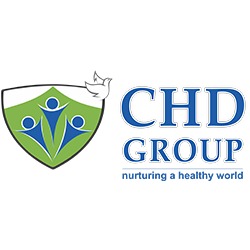Related Research Articles

The one-child policy was a population planning initiative in China implemented between 1979 and 2015 to curb the country's population growth by restricting many families to a single child. The program had wide-ranging social, cultural, economic, and demographic effects, although the contribution of one-child restrictions to the broader program has been the subject of controversy. Its efficacy in reducing birth rates and defensibility from a human rights perspective have been subjects of controversy.

Family planning is the consideration of the number of children a person wishes to have, including the choice to have no children, and the age at which they wish to have them. Things that may play a role on family planning decisions include marital situation, career or work considerations, financial situations. If sexually active, family planning may involve the use of contraception and other techniques to control the timing of reproduction.

Malnutrition occurs when an organism gets too few or too many nutrients, resulting in health problems. Specifically, it is a deficiency, excess, or imbalance of energy, protein and other nutrients which adversely affects the body's tissues and form.
Infosys Foundation is a non-profit organisation based in Karnataka, India, established in 1996 by Infosys to support the underprivileged sections of society. It supports programs in the areas of education, rural development, healthcare, arts and culture, and destitute care in remote regions of India. The foundation is solely funded by Infosys, and no external donations are accepted.
The Child Nutrition Act of 1966 (CNA) is a United States federal law (act) signed on October 11, 1966 by President Lyndon B. Johnson. The Act was created as a result of the "years of cumulative successful experience under the National School Lunch Program (NSLP) to help meet the nutritional needs of children." The National School Lunch Program feeds 30.5 million children per day. NSLP was operated in over 101,000 public and nonprofit private schools in 2007. The Special Milk Program, functioning since 1954, was extended to June 30, 1970 and incorporated into the act. The act also provided Federal funding assistance towards non-food purchases for school equipment.

India's population in 2021 as per World Bank is 1.39 billion. Being the world's most populous country and one of its fastest-growing economies, India experiences both challenges and opportunities in context of public health. India is a hub for pharmaceutical and biotechnology industries; world-class scientists, clinical trials and hospitals yet country faces daunting public health challenges like child undernutrition, high rates of neonatal and maternal mortality, growth in noncommunicable diseases, high rates of road traffic accidents and other health related issues.

Stunted growth, also known as stunting or linear growth failure, is defined as impaired growth and development manifested by low height-for-age. It is a manifestation of malnutrition (undernutrition) and can be caused by endogenous factors or exogenous factors. Stunting is largely irreversible if occurring in the first 1000 days from conception to two years of age. The international definition of childhood stunting is a child whose height-for-age value is below -2 standard deviations from the median of the World Health Organization's (WHO) Child Growth Standards. Stunted growth is associated with poverty, maternal under-nutrition ,poor health, frequent illness, and/or inappropriate feeding practices and care during the early years of life.

The Terma Foundation was founded in 1993 as the Tibet Child Nutrition Project (TCNP), by Dr. Nancy S. Harris and now implements public health programs including nutrition, education, primary and preventive health care, acknowledging traditional belief systems, and integrating low-tech, low-cost western technology where appropriate in Tibet.

Child Rights and You (CRY) is an Indian non-governmental organization (NGO) that works towards ensuring children's rights.

Deepalaya is an Indian non-governmental organization that aids the development of the urban and rural poor in India, with a focus on children. Founded in 1979, it is headquartered in Delhi. Deepalaya primarily serves the urban slums of Delhi, but also works on rural development in the states of Haryana and Uttarakhand. Deepalaya's focus is on sparking sustainable development from within a community.

Freeing nearly 13,000 girls from indentured servitude has been a major accomplishment of the Nepal Youth Foundation (NYF), a U.S.-based 501(c)(3) non-profit organization. The mission of NYF is to provide children in Nepal with education, housing, medical and nutritional care, and general support.
Despite India's 50% increase in GDP since 2013, more than one third of the world's malnourished children live in India. Among these, half of the children under three years old are underweight.
Gardens for Health International (GHI) is an American-based 501(c)(3) non-profit organization that seeks to provide sustainable agricultural solutions to chronic childhood malnutrition. GHI partners with rural health centers in Rwanda to equip families with the seeds, skills, and support necessary to shift the paradigm of food aid from dependency to prevention and self-sufficiency.
Deepak Foundation is a non-profit organization based in Vadodara, Gujarat. It was founded by Shri C.K. Mehta of Deepak Group of Industries in 1982 with the aim of providing maternal and child care services to industrial workers living in the GIDC(Gujarat Industrial Development Corporation) area, and area with a rural population of nearly 50,000 around its plant in Nandesari, Vadodara in Gujarat. Deepak Foundation provides development aid in rural and tribal areas of The district of Vadodara. The foundation's mission is to create and enable a sustainable environment among rural and tribal communities by setting up a basis of livelihood and an intact healthcare system. Nearly 400 full-time professional staff are sanctioned at 22 different locations throughout Vadodara district. Women compromise 35% of the total staff, their work helps almost 2 Million beneficiaries.

Even though there is considerable demand for family planning in Pakistan, the adoption of family planning has been hampered by government neglect, lack of services and misconceptions. Demographics play a large role in Pakistan's development and security since the change from military rule to civilian leadership. Challenges to Pakistani's well-being, opportunities for education and employment, and access to health care are escalated due to the country's continuously-growing population. It was estimated in 2005 that Pakistan's population totaled 151 million; a number which grows 1.9 percent annually, equaling a 2.9 million population growth per year. Though Pakistan's fertility rates still exceed those of neighboring South Asian countries with a total fertility rate at 4.1 and contraception use is lower than 35 percent, approximately one-fourth of Pakistani women wish to either delay the birth of their next child or end childbearing altogether.

In China, "left-behind children", also called "stay-at-home children", are children who remain in rural regions of the country while their parents leave to work in urban areas. In many cases, these children are taken care of by their extended families, usually by grandparents or family friends, who remain in the rural regions.

Health in Guatemala is focused on many different systems of prevention and care. Guatemala's Constitution states that every citizen has the universal right to health care. However, this right has been hard to guarantee due to limited government resources and other problems regarding access. The health care system in place today developed out of the Civil War in Guatemala. The Civil War prevented social reforms from occurring, especially in the sector of health care.
Malnutrition continues to be a problem in the Republic of South Africa, although it is not as common as in other countries of Sub-Saharan Africa.
Malnutrition is a condition that affects bodily capacities of an individual, including growth, pregnancy, lactation, resistance to illness, and cognitive and physical development. Malnutrition is commonly used in reference to undernourishment, or a condition in which an individual's diet does not include sufficient calories and proteins to sustain physiological needs, but it also includes overnourishment, or the consumption of excess calories.

CHD Group is an Indian non-profit global health organisation headquartered in Mangalore. Founded on 27 June 2014, CHD Group works in the field of public health, disaster management, primary healthcare, road safety, women's health, skill development, monitoring and evaluation of programmes, implementing CSR programmes for corporate companies and livelihood for rural communities and partners with other Indian and foreign organisations, government ministries, diplomatic missions, United Nation agencies for capacity development, supportive supervision, technical support, CSR programme implementation and strengthening public health systems.
References
- ↑ "Zhejiang Xinhua Compassion Education Foundation----China CSR Map". Archived from the original on July 25, 2011. Retrieved February 25, 2011.
- ↑ "West China county improves rural children health with free eggs".
- ↑ "Health: China's battle against anemia". Archived from the original on 2011-09-11. Retrieved 2023-08-22.
- ↑ "Zhejiang Xinhua Compassion Education Foundation----China CSR Map". Archived from the original on July 25, 2011. Retrieved February 25, 2011.
- ↑ "- YouTube". YouTube .